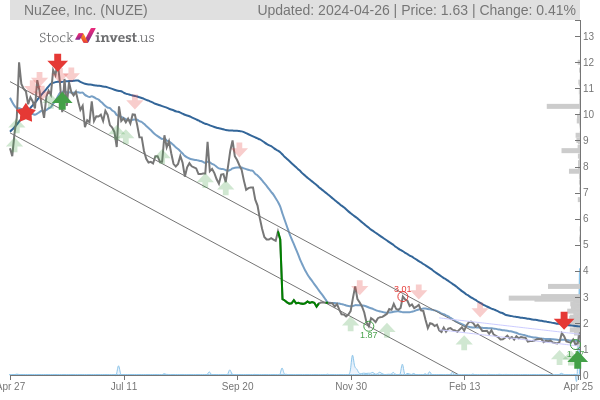Penny stocks, often encapsulated by their low price tag of under $5 per share, present a paradox of enticing potential gains juxtaposed against significant risks.
These stocks typically belong to small companies and trade outside the major market exchanges, frequently on platforms like the Over-the-Counter Bulletin Board (OTCBB) or through the OTC Markets Group.
Here, we delve into the complexities of investing in penny stocks, highlighting the opportunities they may offer and the hazards accompanying them.
Understanding Penny Stocks
Originally defined as stocks trading for less than one dollar, the U.S. Securities and Exchange Commission (SEC) now categorizes any stock trading under five dollars as a penny stock.

These stocks are synonymous with small companies notorious for their low liquidity. This scarcity of buyers can make selling stocks challenging, often forcing sellers to accept lower prices.
The allure of penny stocks lies in their affordability and the potential for substantial returns. The majority of penny stocks are tied to companies with limited resources and varying degrees of financial stability, which can result in heightened volatility and risk.
The Risks of Penny Stocks
Investing in penny stocks presents unique challenges. The lack of liquidity means wide bid-ask spreads, which can lead to significant losses. Due to their low trading volumes, these stocks are also susceptible to price manipulation.
Common scams like the "pump and dump" scheme can leave inexperienced investors with substantial losses.
Moreover, penny stocks often lack comprehensive public information, making it difficult to make informed investment choices. Many trades on the OTCBB where are required to file financial statements with the SEC, but others listed on pink sheets do not share this obligation, reducing transparency and increasing risk.
Regulatory Aspects and Investor Safeguards
The SEC and the Financial Industry Regulatory Authority (FINRA) have set rules specifically for trading penny stocks to mitigate risks.
Brokers dealing with penny stocks must adhere to strict guidelines, including providing detailed disclosures about the risks and current market prices of these stocks. Investors are advised to utilize stop-loss orders to limit potential losses and to thoroughly research any penny stock before investing.
Potential Gains from Penny Stocks
Despite the risks, the potential for significant gains exists. Penny stocks can provide a platform for small companies to access public funds and potentially grow into more substantial enterprises. Investors with a high tolerance for risk and an understanding of the penny stock market can sometimes reap considerable rewards.
Practical Tips for Investing in Penny Stocks
- Research is Critical: Always conduct thorough research or consult with a financial advisor. Understand the company's background, market position, and financial health.
- Set Clear Boundaries: Decide in advance how much you are willing to risk. Utilize tools like stop-loss orders to prevent large losses.
- Watch for Red Flags: Be cautious of stocks with minimal available information or those promoted with unrealistic promises of high returns.
- Understand the Market's Mechanics: Familiarize yourself with how penny stocks trade and the nuances of the OTC platforms where they are listed.
In conclusion...
Penny stocks are not suitable for everyone.
They suit investors who are fully aware of the risks and are prepared to potentially lose their entire investment.
For those drawn to high-risk, high-reward opportunities, penny stocks can be an exciting, albeit perilous, market to explore. As always, balancing the lure of potential profits with the reality of the risks is essential. Whether penny stocks are an appropriate addition to your investment portfolio depends largely on your financial goals and risk tolerance.







